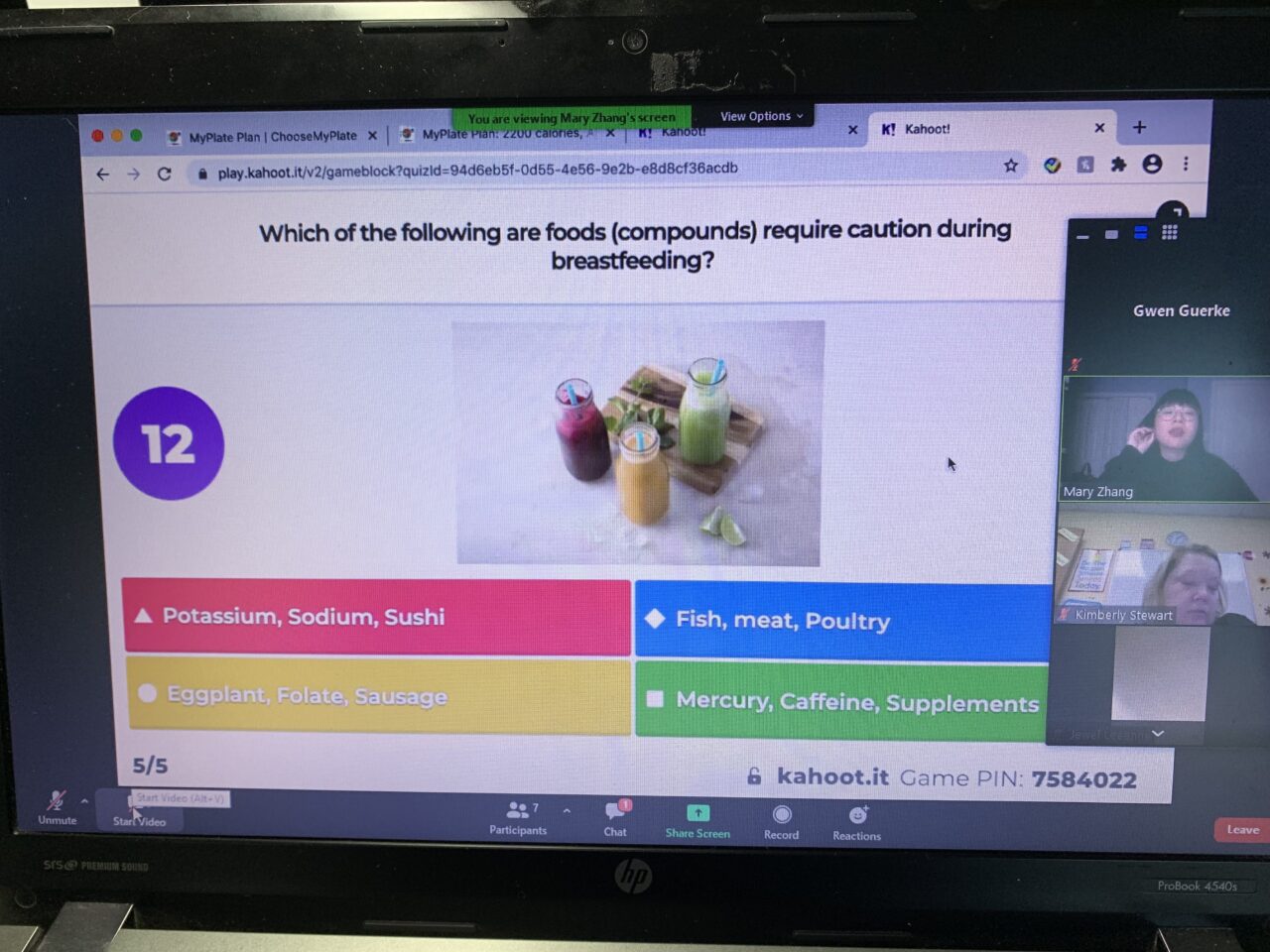Pregnant, breast-feeding teen moms get support from the Food Bank
November 19, 2020
Quality nutritional education is key to healthy mothers and infants
Teen moms-to-be, as well as those who are new moms, can find educational and parenting support from the Delaware Adolescent Program, Inc. – DAPI, and the Food Bank of Delaware is part of the service support team, providing nutritional education to keep moms and their children healthy.
Throughout the COVID-19 pandemic, Food Bank educators have restructured classes previously presented in schools, day cares, libraries, and other facilities to online platforms in order to continue to respond to the educational needs of people we serve.
On Wednesday, Mary Zhang, a University of Delaware dietetic intern who is working with one of our WIC Education Specialists Chong Yi, presented a remote class via Zoom for first-time moms: Nutrition During Breastfeeding. The focus on the class – a PowerPoint presentation followed by an interactive app game – was about structuring a healthy diet for the mother and ultimately her infant. Zhang used the USDA’s My Plate guidelines as the standard for healthy food choices.
“There is no specific breast-feeding diet,” said Zhang. She noted, however, the benefits of a well-balanced diet include adequate milk production for the baby, as well as increased energy, and reducing the risk of diseases for a new mother.
Zhang reviewed the food groups – vegetables, fruit, protein, and grains with a side of dairy – and their nutritional benefits and recommended portion size. She encouraged the students to eat a variety of fruits and vegetables. “The flavor of vegetables and fruit are passed on to the infant through breast milk,” she said.
In addition, Zhang explained the distinction between whole grains and refined grains while encouraging students to select lean proteins, including beans, peas, nuts, and seeds as well as meat and poultry. Breast-feeding moms were also encouraged to consume adequate calcium and to drink plenty of water; extra fluid is required during breast-feeding, she told the students.
In addition to focusing on the benefits of healthy foods, Zhang shared information about some foods which breast-feeding mothers should be approach with caution. Those included fish containing high mercury levels, caffeinated beverages – including sports drinks – and supplements. Zhang advised students to check with their own physician or pediatrician before consuming foods that could create potential problems.
Students were provided access to the presentation which also included links to reference websites.
Visit www.fbd.org for more information about the Food Bank of Delaware’s educational programs.










